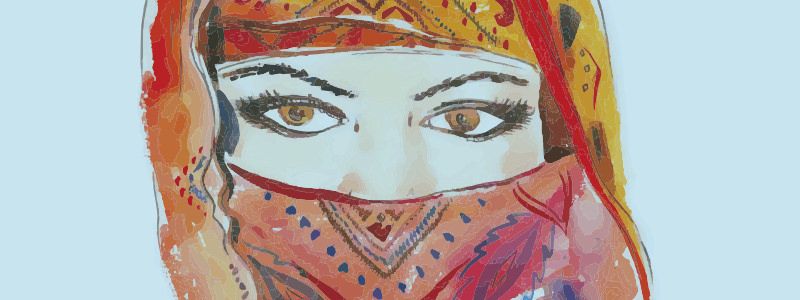This past June, I spent time working at an international youth writing workshop in Iowa. The students came from Russia, the U.S., and the Middle East – specifically, Egypt, Lebanon, Israel, Gaza, Bahrain, Oman, Tunisia and Morocco. Ramadan, the Muslim holy month of fasting, had begun a few days prior, and so every night, those who were observing would break fast together at 8:45 p.m (it goes according to sundown, which is one minute earlier each night). Instead of eating in the dining hall with the other non-Muslim, non-fasting students, they ate around a glass-topped table in the International Writing Program’s office. Most nights I helped prepare their dinner, and I watched as they broke fast with figs, juices, and whatever the dining hall had left over for them. It took them awhile to adjust to eating cafeteria food during Ramadan, as back in the Middle East, they’d be eating delicious homecooked meals each night of the month.
Today is Eid al-Fitr, the feast and holiday that marks the end of Ramadan. The students are now all back home in their respective countries, and likely celebrating Eid with their families while feasting on lavish spreads of food, dancing to traditional Arabic music, and for some, attending mosque.
I felt somewhat self-conscious around the students and chaperones who were observing Ramadan, though perhaps no one was judging but me. While I used to fast during Ramadan, I stopped when I got to college—the no water during the day part was too much–which is also when I began enjoying alcohol. You won’t see booze at most Eid celebrations, as alcohol is deemed haram, or forbidden, by Islam.
As a Muslim who drinks – one who couldn’t imagine her life without the pleasure of wine, or the satisfaction of a cold beer after a long day – I’ve wondered how this bears on my religious self. Does it make me less Muslim? To some, the answer is yes, of course it does. You can’t pick and choose which religious tenets and principles you adhere to–it’s all or nothing, they might say. A drinker does not a Muslim make.
This notion begs the question of what being Muslim means, and how one’s personal religious identity relates to the larger religion. Is a Jew still Jewish if he or she doesn’t follow all the tenets of Judaism? If you don’t keep kosher or observe the Sabbath – then how much of a Jew are you? Can you still call yourself a Catholic if you choose to use birth control?
These larger categories don’t always perfectly apply to the individuals who fall within them. When it comes to religion, it’s not a one-size-fits all approach. Much of our religious identity comes from how we perceive ourselves vis-a-vis a particular religion, and our relationship to it. Where you see yourself falling within it, which aspects speak to you, which one’s don’t.
There are of course, other Muslims who consider themselves Muslim, who celebrate Eid and who identify strongly with the religion, and who drink alcohol. I have a number of Jewish friends who order bacon at brunch and still celebrate Rosh Hashanah, Catholic friends on the pill who still receive communion. In ways, religion has become less doctrine-based, and more cultural. As we celebrate the individual as important–lives matter!–religion becomes that much more personalized.
I will be celebrating Eid today with my brother, my one family member who lives in New York, which is where I live (the rest are split between Washington, DC and the West Bank/Jordan). I may not drink today, because I feel compelled to adhere to tenets and traditions on holy days. But I won’t feel guilty for celebrating Eid, for calling myself a Muslim, even though I didn’t fast and admittedly drank on many occasions during the month. Because what remains untouchable is that intrinsic association and identification I have with my religion, the one that stands separate from everyday choices and interests, and that brings me into a larger cultural experience of being a Muslim.

